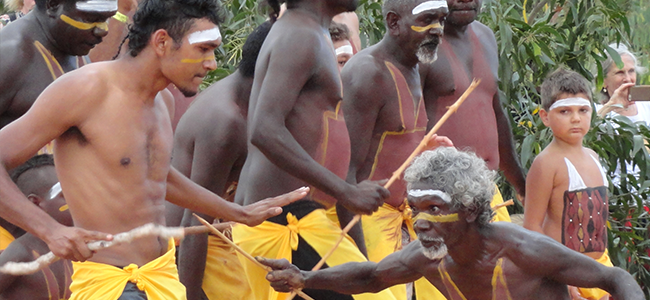
By Associate Professor Julie Satur
In 2010, the mean number of decayed or missing teeth among Australia’s Indigenous children was almost twice that for non-Indigenous children in all age groups. For those over 15 years of age, the decay rate is three times that of non-Indigenous people. This latter age group is also more than twice as likely to have advanced periodontal disease and five times more likely to have complete edentulism.
This has not always been the case.
Traditionally, Aboriginal and Torres Strait Islander people had good oral health with attrition the most commonly seen dental condition. The introduction of fermentable carbohydrates and sugars into the Indigenous diet in the 19th and 20th centuries was the catalyst for a severe decline in oral health. Although at present a proportion of Aboriginal and Torres Strait Islander people have good oral health, on average Indigenous people experience poor oral health earlier in their life and with greater severity and prevalence than the rest of the population.
For many Indigenous people, access to culturally appropriate and timely dental care is often not available. This is particularly true in the rural and
In recognition of these challenges, the Melbourne Dental School (MDS) has developed a partnership with Miwatj Health, an Aboriginal community controlled health service based in Nhulunbuy, (EAL) in the Northern Territory as part of the University of Melbourne’s collaboration with the Yothu Yindi Foundation. The partnership represents a formal commitment to recognition and respect for Yolngu learning and knowledge. The Miwatj-MDS partnership will focus on building community-led oral health projects, including services, oral health promotion and research arising from local needs. Importantly, the partnership aims to build the University’s understanding of, and share in, Yolngu intellectual traditions through an agreed program of activities that span culture, leadership, education, health and research.
The Melbourne Dental School has contributed to a needs assessment and engagement work to underpin the Miwatj-MDS partnership including a scoping visit to Miwatj and EAL, attending the Garma Festival and hosting a visit to Melbourne by Dr Lucas De Toca, CMO of Miwatj.
In February 2017, the staff of the Melbourne Dental School and the Faculty of Medicine, Dentistry and Health Sciences participated in an Oral Health Summit in Nhulunbuy, which had strong participation from the Commonwealth and Territory Governments, health service providers, the Homelands Corporations in EAL, and Miwatj Board members. The summit laid the groundwork for a regional Oral Health Plan to enable the partnership work to progress with local leadership.
In July and August of this year, after completion of cultural competence preparation, four Bachelor of Oral Health students will undertake placements hosted by Miwatj and Oral Health Services NT in Nhulunbuy. These students will pilot a range of models of care to inform the development of a larger-scale strategy potentially including an oral health and dentistry student placement program. In addition, the Melbourne Dental School will be contributing expertise to a range of public oral health projects in response to the identified needs of the region.
Given the challenges of reducing inequalities in oral health, it is expected that this project and the EAL Oral Health Plan will also bring to light further questions that will require additional research and evaluation, engaging the MDS and other parts of the Faculty of Medicine, Dentistry and Health Sciences over the next decade.